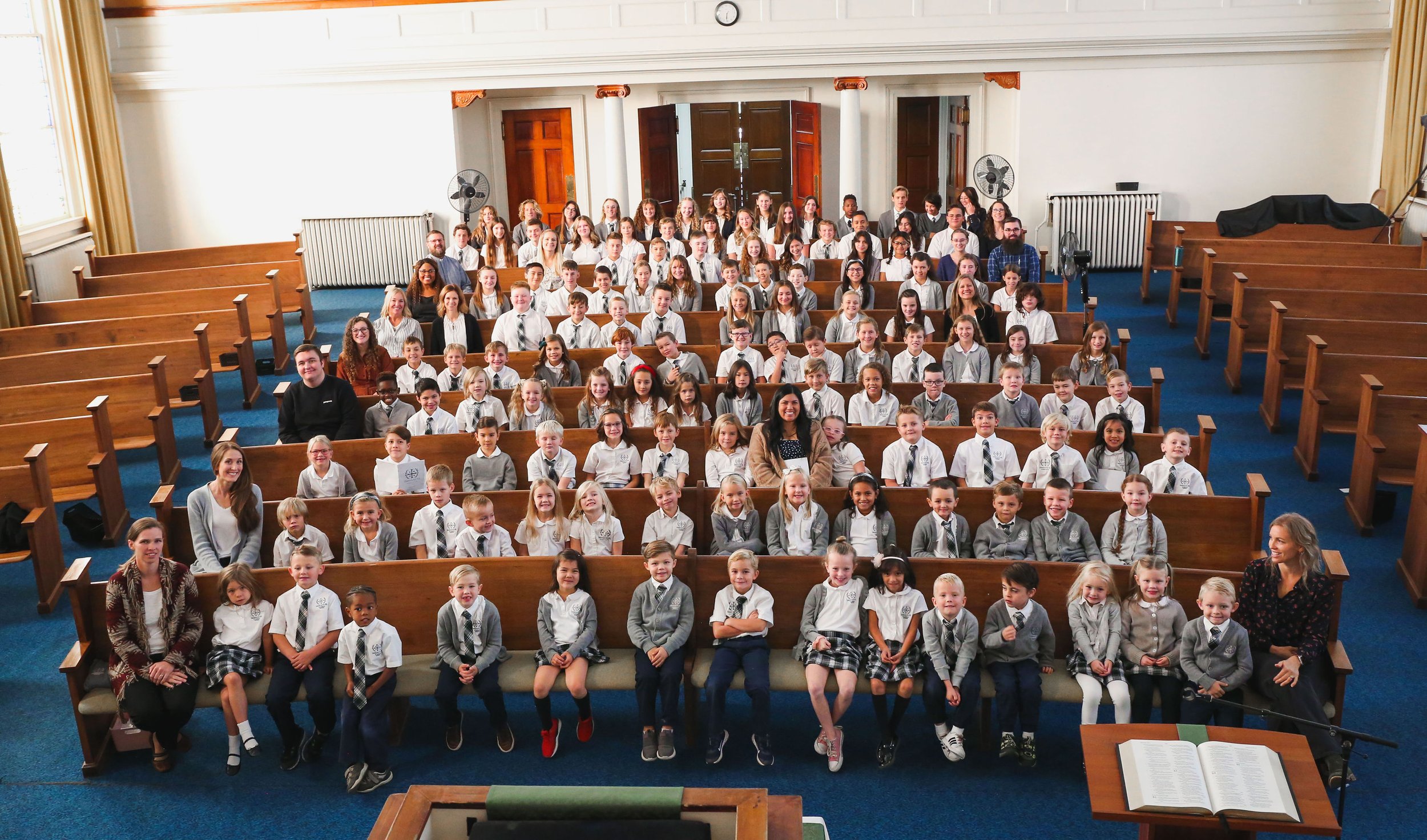
Our Mission
Our mission is to cultivate wonder, train in truth, and shape our students’ love for God and His world through robust, objective-based, Classical Education.
Cultivate Wonder
We believe that love (for God, for people, for the world) and wisdom are only formed in children through the experience of wonder. We love the things that inspire wonder in us. These are the things that capture our hearts. Therefore, the kids at Immanuel will learn the importance of discipline, order, and hard-work, but always for this important purpose: to lead them into a deeper wonder at who God is and all that he has done in his creation, in history, in Christ, and in us.
Train in Truth
All truth is God’s truth. it is our dream that our students would grow up seeing Jesus on every page, under every fact, in every story, and woven into every equation. Education is ultimately about finding that Jesus is Lord of all, and in Him, all things hold together. As we engage in various subjects, it is with the underlining principle that all things that are true, are from God himself.
Shape in Love
When we learn, our loves are being shaped. We aren’t just training our children how to love, but what to love. Being shaped in the love of Christ has the potential to have a profound influence over the culture of a school. Come into our walls and you will breathe the love of Jesus in the air, and feel His grace in the atmosphere. God has sprinkled his grace all over these young lives, and we want that grace to define everything about who they are.
Brothers, whatever is true, whatever is honorable, whatever is just, whatever is pure, whatever is lovely, whatever is commendable, if there is any excellence, if there is anything worthy of praise, think about these things.
Philippians 4:8

Distinctly Classical Approach
St. Augustine once said that the only question we need to ask in developing an educational program is, "What skills does a child need to understand the Bible and tell others about it?" That might seem simplistic, but, what are those skills? Students need to be able to read (books are important). But even more than that they must understand grammar, literature (the Bible is filled with poetry, history, parables, proverbs, legislation, etc.), and ancient languages. They need to know geography (the Bible is filled with places) and history (the Bible tells the history of the nations of the world and has affected history after the Bible was written). But to really understand the Bible a young person needs the principles of logic to make a theological inquiry and so must be trained to think logically. Augustine discusses numbers in Scripture, and talks about the physical world —we need to know math and science. But the capstone of Augustine's ideology is the ability to communicate God's truth to others in a way that is winsome and moving—that is, the study of rhetoric. Amazingly, this embodies a thorough liberal arts education. And this is why Christians for millennia have gone into new cultures, championing literacy and education, and transforming these cultures with the study of God’s Word. The liberal form our heritage. The goal of a classical education is not to nostalgically return to a golden age of the past, but to build on the heritage of Christian learning as we move creatively into the future in a post-Christian society.
This robust, distinctly Christian view of education has largely been lost in our culture. It is hard to train a child to love goodness, beauty, and truth when we don't believe such things exist. This is why Christian education will be distinctly different from the education of the world. We are teaching our kids to love what God loves. But it turns out that these abilities to think wisely and communicate effectively (the goals of the liberal arts) are precisely the most important skills a person needs to go into life, the workforce, and to transform the world. We have the tools to equip our children to confidently go out into the world as light, and to go forth as God's agents, . Here at Immanuel Classical School we are recovering these tools and have been amazed to give our children something that we never had.
Our Name
Our name flows out of our vision for what education should be. The pursuit of knowledge is ultimately a pursuit of God. The more we know this world that he has made, the more we know the one who created it. God has manifested himself and made himself known to us most purely in the word made flesh—Immanuel. Thus our quest for knowledge is a quest to know Immanuel—God with us.
“God is known in proportion to the extent that he is loved.”



